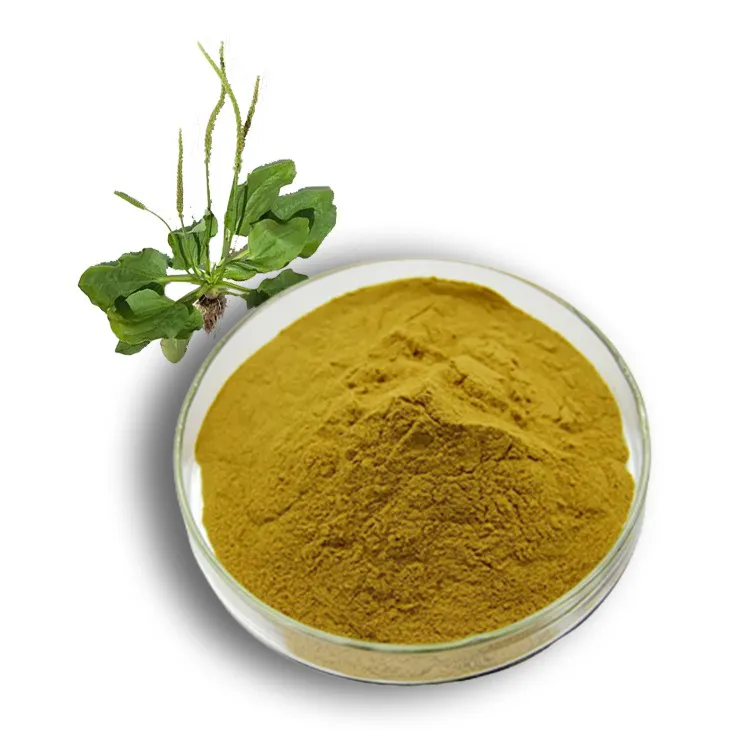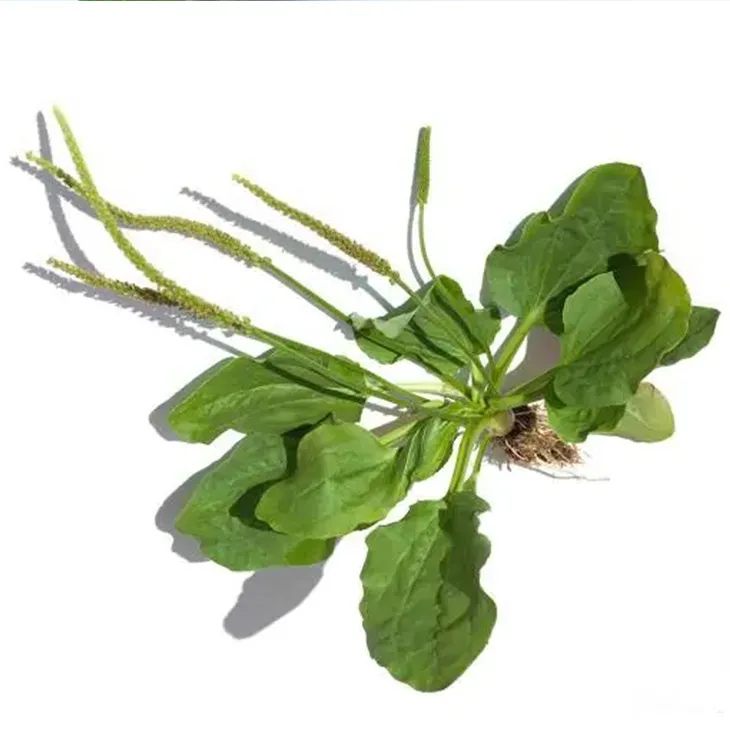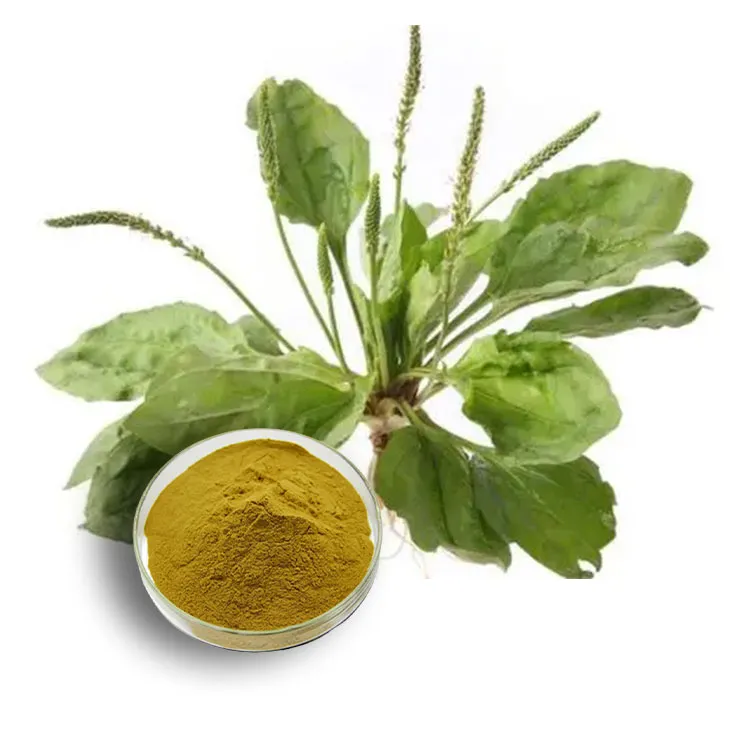- 0086-571-85302990
- sales@greenskybio.com
Plantain Extract: Benefits, Uses and Possible Side Effects
2024-11-12

1. Introduction
Plantain extract has been used for centuries in traditional medicine across different cultures. Derived from the plantain plant, which is not to be confused with the banana - like fruit of the same name, this extract offers a plethora of potential health benefits. It is rich in various bioactive compounds that contribute to its diverse range of uses, from treating certain medical conditions to enhancing beauty and skin health. However, like any natural or medicinal substance, it also has the potential to cause side effects. Understanding these aspects of Plantain extract is crucial for those who may consider using it.

2. The Plantain Plant
The plantain plant is a common weed in many parts of the world. It has broad, oval - shaped leaves and can be found in lawns, fields, and along roadsides. There are two main types of plantains used for medicinal purposes: Plantago major and Plantago lanceolata.
2.1. Plantago major
Often referred to as the "common plantain," Plantago major has large, soft leaves. It is a hardy plant that can tolerate a wide range of environmental conditions. This type of plantain is rich in mucilage, a substance that gives it its soothing properties, especially when it comes to treating skin irritations and digestive issues.
2.2. Plantago lanceolata
Plantago lanceolata, also known as "ribwort plantain," has narrower, lance - shaped leaves. It contains compounds such as aucubin and catalpol, which are believed to have anti - inflammatory and antioxidant properties. This plant is also used in herbal medicine for similar purposes as Plantago major, but may have some differences in its chemical composition and thus, in its potential effects.

3. Benefits of Plantain extract
3.1. Anti - inflammatory Properties
One of the most well - known benefits of plantain extract is its anti - inflammatory action. The bioactive compounds present in the extract, such as flavonoids and phenolic acids, help to reduce inflammation in the body. This can be beneficial for a variety of conditions, including:
- Arthritis: Inflammation of the joints is a common symptom of arthritis. Plantain extract may help to relieve joint pain and swelling by reducing the inflammatory response.
- Skin Inflammations: Such as eczema, psoriasis, and dermatitis. Applying plantain extract topically can soothe irritated skin, reduce redness, and promote healing.
3.2. Digestive Aid
The mucilage content in plantain extract makes it an excellent digestive aid. It can:
- Relieve Constipation: By adding bulk to the stool and promoting bowel movements in a gentle way.
- Soothe the Digestive Tract: In cases of gastritis or other digestive irritations, the mucilage forms a protective layer over the lining of the stomach and intestines, reducing discomfort.
3.3. Antioxidant Activity
Plantain extract contains antioxidants like vitamin C, beta - carotene, and various phenolic compounds. These antioxidants play a crucial role in:
- Protecting Cells from Damage: By neutralizing free radicals, which are unstable molecules that can cause damage to cells and contribute to aging and various diseases.
- Boosting the Immune System: A healthy immune system is better able to fight off infections and diseases, and antioxidants in plantain extract can support this function.
3.4. Wound Healing
When applied to wounds, plantain extract can accelerate the healing process. This is due to several factors:
- Anti - microbial Activity: It can help to prevent infection by inhibiting the growth of bacteria, fungi, and other microorganisms on the wound surface.
- Stimulation of Cell Growth: The extract may promote the growth of new skin cells, which is essential for closing the wound and reducing scarring.

4. Uses of Plantain Extract
4.1. In Herbal Remedies
Plantain extract is a key ingredient in many herbal remedies. It can be prepared in different forms, such as:
- Tinctures: These are alcohol - based extracts that are easy to store and have a long shelf - life. Tinctures can be taken orally, usually diluted in water, to reap the internal benefits of plantain extract, such as for digestive or anti - inflammatory purposes.
- Infusions and Teas: By steeping dried plantain leaves in hot water, an infusion or tea can be made. This is a popular way to consume plantain extract for its soothing and health - promoting properties. Drinking plantain tea can be beneficial for relieving coughs, sore throats, and digestive discomfort.
- Salves and Ointments: For external use, plantain extract can be made into salves or ointments. These are useful for treating skin conditions like burns, cuts, insect bites, and rashes. The anti - inflammatory and wound - healing properties of the extract make it an ideal ingredient in topical preparations.
4.2. In Skincare
Due to its various beneficial properties, plantain extract has found a place in the skincare industry.
- Moisturizing: The mucilage in plantain extract helps to retain moisture in the skin, leaving it soft and supple. This makes it suitable for dry or dehydrated skin types.
- Anti - aging: The antioxidant activity of the extract helps to combat the signs of aging, such as fine lines and wrinkles. By protecting the skin from free radical damage, plantain extract can keep the skin looking youthful and healthy.
- Acne Treatment: Its anti - microbial properties can be useful in treating acne. Plantain extract can help to kill the bacteria that cause acne breakouts and reduce inflammation associated with pimples.
5. Possible Side Effects of Plantain Extract
While plantain extract has many potential benefits, it is not without possible side effects. It is important to be aware of these before using plantain - based products.
5.1. Allergic Reactions
Some individuals may be allergic to plantain extract. Allergic reactions can range from mild, such as skin rashes, itching, or redness, especially when used topically, to more severe reactions like difficulty breathing or swelling of the face, lips, or tongue in rare cases. People with known allergies to other plants in the same family or those with sensitive skin or allergies in general should be cautious when using plantain - related products.
5.2. Gastrointestinal Disturbances
Although plantain extract is often used to aid digestion, in some cases, it may cause gastrointestinal disturbances. High doses of plantain extract may lead to:
- Nausea: An unpleasant feeling in the stomach that may lead to vomiting if severe.
- Diarrhea: Excessive consumption of plantain extract may disrupt the normal balance of the digestive tract, resulting in loose stools.
5.3. Interactions with Medications
Plantain extract may interact with certain medications. For example:
- Blood - thinning Medications: Since plantain extract may have anti - coagulant properties, it could potentially increase the risk of bleeding when used in combination with blood - thinning medications like warfarin. It is essential to consult a healthcare provider if you are taking such medications and considering using plantain extract.
- Diabetes Medications: There is some concern that plantain extract may affect blood sugar levels. People with diabetes who are taking medications to control their blood sugar should exercise caution when using plantain extract, as it could potentially interfere with the effectiveness of their diabetes medications.
6. Conclusion
Plantain extract is a natural substance with a wide range of potential benefits, from its anti - inflammatory and antioxidant properties to its uses in herbal remedies and skincare. However, it also has possible side effects that should not be overlooked. Before using plantain extract, it is advisable to consult a healthcare professional, especially if you have pre - existing medical conditions, are taking medications, or have a history of allergies. With proper knowledge and caution, plantain extract can be a valuable addition to a natural health and beauty regimen.
FAQ:
What are the main benefits of plantain extract?
Plantain extract has several main benefits. It has anti - inflammatory properties, which can help reduce inflammation in the body. It is also beneficial for digestion as it may help soothe the digestive tract. Additionally, it has antioxidant properties that can protect the body's cells from damage.
How is plantain extract used in herbal remedies?
In herbal remedies, plantain extract can be used in different forms. It can be made into a tea, which is consumed for its various health - promoting effects. It can also be used as a tincture, where the active compounds are extracted in alcohol. Some herbalists use it topically in the form of a poultice for skin issues or minor wounds.
What role does plantain extract play in skincare?
Plantain extract plays an important role in skincare. It has soothing properties that can calm irritated skin. It may also help in reducing inflammation on the skin, such as in cases of acne or eczema. Some skincare products contain plantain extract as it can contribute to healthier - looking skin by providing moisture and potentially enhancing the skin's natural barrier function.
What are the possible side effects of plantain extract?
Although plantain extract is generally considered safe, some possible side effects may occur. In some cases, it can cause allergic reactions, especially in individuals who are sensitive to plants in the plantain family. If consumed in large amounts, it may also cause digestive discomfort such as nausea or diarrhea. However, these side effects are relatively rare.
Can anyone use plantain extract?
While plantain extract is generally safe for most people, not everyone can use it. Pregnant and breastfeeding women should be cautious and consult a healthcare provider before using it, as there is limited research on its safety during pregnancy and lactation. People with known plant allergies should also avoid it to prevent potential allergic reactions.
Related literature
- The Benefits and Applications of Plantain Extract in Natural Medicine"
- "Plantain Extract: A Comprehensive Review of Its Chemical Composition and Therapeutic Effects"
- "Safety and Efficacy of Plantain Extract in Skincare"
- ▶ Hesperidin
- ▶ citrus bioflavonoids
- ▶ plant extract
- ▶ lycopene
- ▶ Diosmin
- ▶ Grape seed extract
- ▶ Sea buckthorn Juice Powder
- ▶ Beetroot powder
- ▶ Hops Extract
- ▶ Artichoke Extract
- ▶ Reishi mushroom extract
- ▶ Astaxanthin
- ▶ Green Tea Extract
- ▶ Curcumin Extract
- ▶ Horse Chestnut Extract
- ▶ Other Problems
- ▶ Boswellia Serrata Extract
- ▶ Resveratrol Extract
- ▶ Marigold Extract
- ▶ Grape Leaf Extract
- ▶ blog3
-
Cranberry Plants and Skin - care Products.
2024-11-12
-
Mulberry leaf Extract
2024-11-12
-
Artichoke Leaf Extract
2024-11-12
-
Yam Extract
2024-11-12
-
Baicalin
2024-11-12
-
Citrus Aurantii Extract
2024-11-12
-
Grape Leaf Extract
2024-11-12
-
Uridine-5'-monophosphate Disodium salt
2024-11-12
-
Hawthorn powder
2024-11-12
-
Senna Leaf Extract
2024-11-12
-
Shikonin
2024-11-12





















